Most Recent News


Popular News


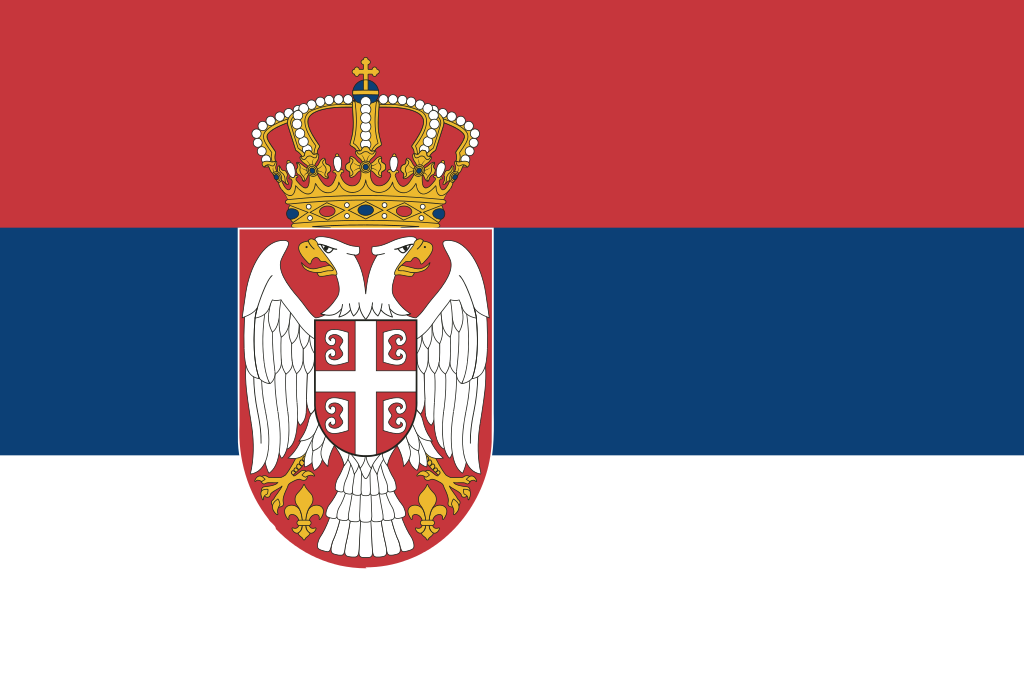
"Kosovo is Serbia" and 'Kosovo je Srbija'. Why are Serbs fighting for Kosovo? What can we learn from their past?
Kosovo declared independence from Serbia in 2008. It is still only considered a “semi-recognized” state, as many states refuse to accept its independence decree. Still, you sometimes hear from ethnic Serbs: Kosovo is Serbia!
But why?
When looking at just the demographics, it seems that Kosovo independence is only fair. The CIA world factbook declares that 92% of the entire population is of Albanian heritage. Only 1.5% of Kosovo’s population is Serbian. So, looking at only these numbers we would come to an obvious conclusion that Serbs are not dominate here, and should not be able to consider that territory as Serbian, if the constituents do not wish it to be.
But how did Kosovo get to this situation? Why would I still state that Kosovo is Serbia? And what lessons can we learn from this ordeal?
Well, as with most things, we must look at history to answer our questions.
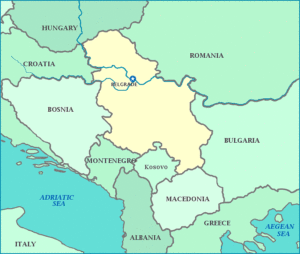
We’ll be starting with the Bulgarian period. Kosovo was under Bulgarian rule during the reign of Khan Presian in the year 836.
A few decades later, the Christianization of the Bulgarian empire began to occur widespread. Many churches and monasteries were built in the region, and mass converting occurred.
Toward the end of their rule, most constituents of the territory of Serbia were Christian.
By 1216, the Byzantines had taken over. They controlled a large sum of land, incorporating most of modern-day Serbia, Kosovo, and Montenegro.
Byzantines were heavily Christianized. The vast majority of Serbia (and Kosovo) had already converted to Christianity during the Byzantine reign.
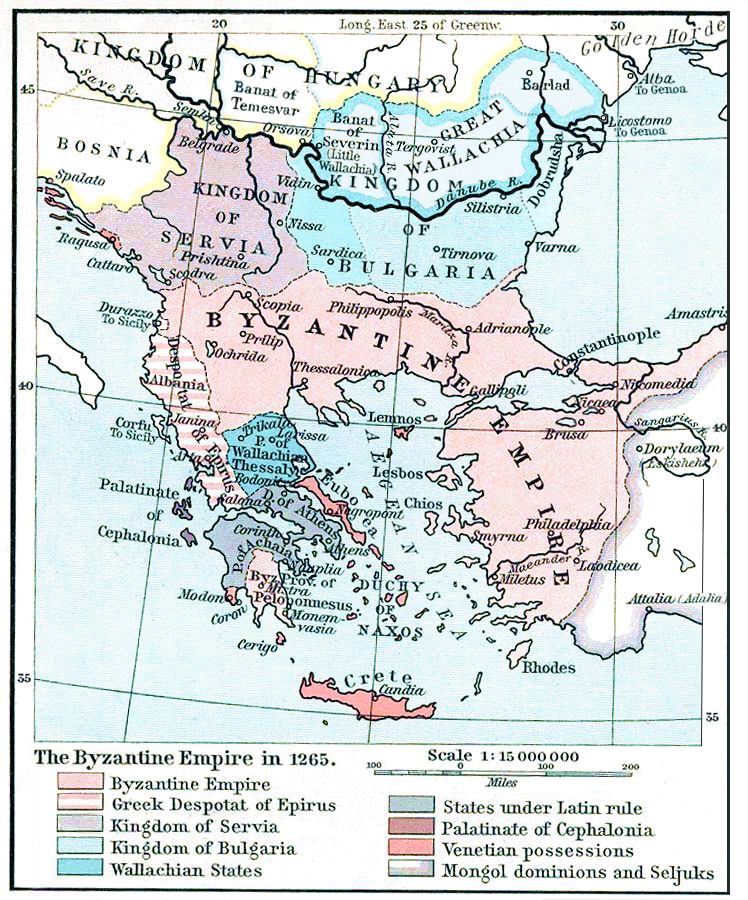
Finally, the territory became under the control of the Serbian Empire in 1346. This meant that the Serbs controlled Kosovo at this time entirely. It also meant that most of the region’s population was ethnic Serbs and Christians (from the Bulgarian and Byzantine influences).
However, it didn’t last long until the Ottoman Turks waged war and captured the territory in 1455.
So why am I telling you all of this? Because the region of Kosovo was majority Serbian, and majority Christian, all the way back since the Bulgarian empire. And continued through the Byzantine Empire, all the way until the Fall of Byzantine Empire.
When the Ottomans came to power, they brought the beginning of Islamization of Kosovo.
The rise of Islam in this region had strange effects on the inhabitants. The Albanians eventually adopted Islam (As Albania was under the control of the Ottomans as well), while the Serbs did not. Albanians are some of the only white Europeans that actually converted to the false religion en masse.
Considering that Kosovo was a predominately Serb territory, this was problematic to the Ottoman Empire.
They began doing some pretty harsh campaigns to destroy the Christian influence in the region. Even going so far as to abolishing the Serbian Patriarch. The Patriarch, which existed for over 400 years and its downfall greatly hurt Christianity in the region.
Similarly, the Orthodox and Roman churches faced heavy tax in the face of the Ottoman’s.
Life was not great to be a Christian Serb under the Ottoman rule.
And it did not get any better.
Up until the late 17th century, Serbs were the clear ethnic majority in the country. They were still the predominate Kosovo residents and constituents under Ottoman rule. In short, unlike the Albanians, Serbs had refused to convert en masse to Islam while under domination by them.
Starting in the early 18th century, many Albanians (the ones that converted to Islam) began to mass migrate into Kosovo. They mainly resided in the southern regions. This impact caused the slow, centuries-long process of demographic annihilation of the Serbs in Kosovo.
With the rise of more Albanians in Kosovo, problems began occurring. The Albanian National Movement was a rising nationalist movement to fight against the Ottoman’s. They intended to create an Albanian villa-yet within the Ottoman empire.
They did so because many Albanians were being deported from Kosovo by Serbs, for fear of this exact thing from happening (a rise of ethnic nationalism looking to overtake the region). Their fears were not misguided, as we can obviously see the effects now (Serbia has lost Kosovo).
Likewise, there were many other small rebellion and violent movements by the Albanians in Kosovo. They started a rebellion in 1912, which was the pre-text for the First Balkan Wars which pitted the Balkan regions against the Ottoman Empire.
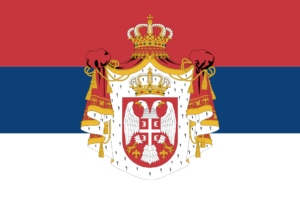
During this time, most of Kosovo (3 out of 4 parts) were integrated into the newly formed Kingdom of Serbia (Serbian Empire round 2).
The Kingdom did not last long, as in 1929 the country was renamed Serbia, Kosovo, and many other territories “Yugoslavia”.
After the axis-invasion of Yugoslavia in 1941, most of Kosovo was handed over to Albania.
The Prime Minister of Albania (Mustafa Kruja) did not take a liking to Serbs in Kosovo. He even stated the following:
“We should endeavor to ensure that the Serb population of Kosovo should be removed as soon as possible … All indigenous Serbs who have been living here for centuries should be termed colonialists and as such, via the Albanian and Italian governments, should be sent to concentration camps in Albania. Serbian settlers should be killed.”
As you can imagine, this caused mass migration and the deaths of tens of thousands of Serbs. In a territory that has been their home since before the conception of Christianity.
They were physically removed while mass replacement migration occurred.
After the war, the communist government of Yugoslavia expelled even more Serbs and did not allow hundreds of thousands of them to return to their homes.
But what they did do was allow mass Albanian migration into the region to “make up” for the lost Serbian population.
Over 70,000 Albanians migrated to Kosovo during this time.
And not only this, but the birth rates of Albanians trumped the Serbians in huge numbers. Albanians had a birth rate of 34/1000 residents – the highest in all of Europe.
And thus, Kosovo became majority Albanian sometime in the 19th or 20th century.
Today Kosovo is home to only 1.5% Serbs. The once majority is now not even their largest minority group.
This happened through three primary reasons stated above:
All of this occurred in a region that Serbia claims is the “cradle of its civilization” IE: Kosovo.
Serb rights are under constant threat in Serbia now.
After the War of Kosovo, the terrible and utterly incompetent UN even stated that they are worried about Serb rights.
The Human Rights Watch has also voiced concern over the slow progress on human rights for Serbs in Kosovo.
Hundreds of churches and monasteries dating back to the 13th-14th century have been destroyed or desecrated.
Even in 2004, large-scale violence against the (now) minority Serb population broke out. Civilians were murdered, thousands had to leave their homes, churches were torched, and it was even considered by the (then) Serbian president as ethnic cleansing.
When the Serbs tried to request partitioning off Kosovo so the Serbs living in their home region could live in peace, the Kosovo parliamentary speaker (Jakup Krasniqi) had this to say:
“All of those who aim to divide Kosovo, I want to say, it will end in nothing. Serbs lost their right to Kosovo with the unjust war against the Albanian majority.”
And my response to him is: The Albanian majority is unjust to begin with.
While Kosovo may be lost to the Serbs (for now), we can still learn from their intriguing history.
Once upon a time, the territory known as Kosovo was a strong ethnic Serb majority with unbelievably hard-strung ties to Orthodox Christianity.
Now, it is a majority Albanian and Muslim state.
This occurred primarily because of the out-numbering of the ethnic Serbs by the converted Muslim Albanians.
They did this through three primary ways:
In a way, it’s not much different from how the USA was formed. We outnumbered the Native Americans, we had higher birth rates, and we committed violence against the natives.
Likewise, with China and Taiwan. Same example of what happened in Egypt. And a very similar story to Israel.
This isn’t some onetime example. It’s what has happened throughout all of human history. Every nation has utilized these tactics. And every nation should put in steps to avoid this from happening in the future.
When mass migration occurs in our countries, with people that have a much higher birth rate as our own, it creates massive problems. Violence goes up. Ethnic problems rise. And our values and society diminish with it. The exact situation that happened in Kosovo.
And it is what is happening in many Western nations right now.
Do we honestly believe that just because the year is (current year), that this won’t happen? That these tales of history no longer apply to us because we’re “modern” year?
Integration of Albanians in Kosovo did not work. In fact, it did the opposite.
It drove the Serbs out completely. And they lost a region they once called their cradle of civilization.
We have to learn from these examples, or we too shall become the Kosovo Serbs. Destroyed and evicted from our own home.
The lesson to take away from this is that integration and immigration are not always what they seem. It does not always produce a rose-tinted view of everyone happily singing songs and getting along.
Sometimes, it involves loss of your country, her values, and its identity.
What happened to the Serbian people in Kosovo is a tragedy. But we must utilize this knowledge to make sure it never happens again. Or, as the saying goes, “history will repeat itself”.
If you support “Kosovo is Serbia” or “Kosovo je Srbija” – share this article. Get the information out so everyone will know how (and why) Serbia lost Kosovo.
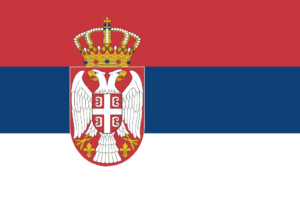
Comments are closed.
(Learn More About The Dominion Newsletter Here)
Kosovo je srbija!
Appreciate the article. Glad to know we do have at least some people in the US (NATO) that truly understand what the hell happened to my country.
Have you heard of the Ottoman Massacres in Serbia?
Hey Antonije: I have. The Ottomans committed massacres in pretty much all of their subordinate states. That’s just another example of what have decimated the Serbian population in Kosovo – they were terrified and had to run back to their native lands where they felt safer.
Anyway, good luck to your country and I hope the best for all Serbs.
I am reading this today, Jan. 24, 2022. I was doing some research about the similarities between the US/NATO posture towards Kosovo and Serbia, and the completely (I would say hypercritical) posture in Kiev, Ukraine, and the Donbass region. I found your article to be remarkably interesting and informative. I just wanted to say thank you and to ask if you have formed an opinion about the situation in Ukraine today.
Hey Edward, thanks for the comment. Glad it was an interesting read.
I find it pretty clear that NATO (the US in particular) is provoking Russia with the Ukraine issue. Russia would not be worried about Ukraine if it were not for external influences making it so. Russia has no interest in Ukraine, nor should they because the state would be a disaster for them to hold/control. There are no benefits in it for them. But we all know if Ukraine joins NATO, NATO will put massive weapons right on their border, which is a short drive to Moscow. A similar thing happened in Kazakhstan recently with foreign militias provoking a lot of the unrest that occurred there. Which is ironic, because it also borders Russia. There is clearly a coordinated assault on countries bordering Russia by NATO-aligned states. As you noticed, a similar event unfolded with Kosovo and Serbia, with NATO supporting muslim invaders to destabilize the region, likely not just to strike at nationalists, but to also cause problems within Russia’s immediate sphere of influence. NATO supported Kosovo becoming its own region because it was ethnically a similar people, whereas they do not support the Donbass region joining with Russia while they are a similar people. It’s all hypocritical politics. Whether the U.S. is actively trying to provoke a war or not, I am not certain—no one is, but there are definitely things at play here that are not adding up.
Albanians only focused on Greater Albania. They are evil
Came here to learn about prepping water, left knowing about over a thousand years of history of Kosovo.
i love the internet
It is not surprising for me. This pure propaganda was a state agenda for 150 years now. It is unbelievable how far Serbs can go lying their-selves. Slavs came to Balkan around year 700-800, they found Illyrians-Dardanians-Albanians there.
About crimes, dude I experienced the war, I know what regular serbian army did in Kosovo. They shot my neighbor when they asked him for a pack of Marlboro cigarettes he didn’t have. They killed kids, women and elder people. After WW2 Slobodan Milosevic is the bloodiest dictator that caused bloodiest wars, not just in Kosovo(which we will rename Dardania – its original name soon). Albanians in Kosovo were mostly christian and orthodox, many serbs are actually with Albanian blood lol.
What it doesn’t make sense is that Serbia controlled Kosovo for a long time, how come serbs left from Kosovo due to their missing rights, while serbs ruled Kosovo?!!!! that just doesn’t make sense. In 1900s around 600 villages of Albanians from southern-serbia were expelled, most of them to Turkey and another part of them to Kosovo — we still call them with a distinct name.
We went through genocide, we weren’t allowed to go to school, we didn’t have the basic human rights while we were under Serbian rule. Then the whole world saw who the real serbia was, they intervened kicked criminal serbian state out. Nowdays serbs in Kosovo have all the rights, they actually are positively discriminated, if a serbs applies for a government job in Kosovo he/she gets it right away even if there are way more qualified Albanian candidates.
Read the article. Your emotional appeal doesn’t matter here and the only one lying to themselves is you. “The whole world” did not kick the Serbs out, an evil US-led NATO did solely to provoke Russia and destabilize the region. If it wasn’t for that, you wouldn’t of had any aid from any state. The Kosovo population invaded the Serb land over time and then when the Serbs tried to reclaim it, a foreign army bombed them. That’s the reality, whether or not you admit it is not relevant. Whether or not the Serbs were mean is also not relevant. The Serbs did not rule Kosovo during the course of the migration invasion, the Ottomans did. By then the demographic destiny was too late for them, they could try the war or succumb quietly to replacement.